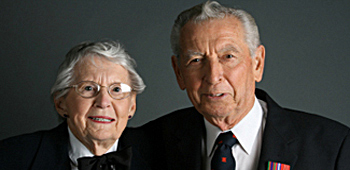VA Aid and Attendance Pension
I am a veteran (or the spouse of a veteran). Am I eligible for additional benefits?
The Aid and Attendance Pension is an often overlooked benefit for a veteran or the surviving spouse of a veteran. The Aid and Attendance Pension pays for the help a veteran or surviving spouse may need to perform the tasks of everyday living.
To be eligible for the Aid and Attendance pension:
- a veteran must have served at least 90 days of active duty, with at least one day during these wartime periods
- World War II - December 7, 1941 - December 31, 1946
- Korean War - June 27, 1950-January 31, 1955
- Vietnam Conflict - August 5, 1964-May 7, 1975 (February 28, 1961-May7, 1975 if in the country of Vietnam)
- Gulf War - August 2, 1990 - a future date yet to be set
- a veteran must have had an “other than dishonorable discharge”
- a veteran or surviving spouse seeking the benefit must be in need of assistance with “activities of daily living” such as eating, bathing, dressing, grooming or taking care of toileting needs. It also includes those who are blind, or a patient in a nursing home or assisted living facility because of mental or physical incapacity
- a veteran or surviving spouse seeking the benefit should have less than $80,000 in assets excluding the home, car and personal possessions. $80,000 is typically the asset cap, but the VA may consider the applicant’s life expectancy and require lower total assets. If your assets are above the $80,000 cap, an elder law attorney may be able to provide you with a strategy that can reduce your assets to qualify for the Aid and Attendance pension.
- a veteran or surviving spouse must have monthly income lower than the following amounts
- Single Veteran - $1,732
- Married Veteran - $2,054
- Surviving Spouse - $1,113
In determining whether a veteran’s or a surviving spouse’s income is below the required income level, the VA will deduct from the applicant’s gross income any recurring non-reimbursed medical expenses, including insurance and Medicare premiums and assisted living facility fees.
Family members may be paid as caregivers and that payment can be a deductible medical expense. If you are a veteran or a surviving spouse, and a family member is helping take care of you anyway, paying them may assist you in qualifying for the Aid and Attendance Pension. There are some exceptions and reporting requirements, so it is best to have an elder law attorney help you with the arrangements if you would like to pay a family member as a caregiver
The maximum Aid and Attendance Pension amounts that you may receive are:
- $1,732 per month if you are a single veteran
- $2,054 per month if you are a married veteran
- $1,113 per month if you are a non-remarried surviving spouse of a veteran.

